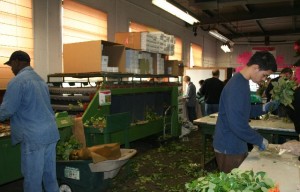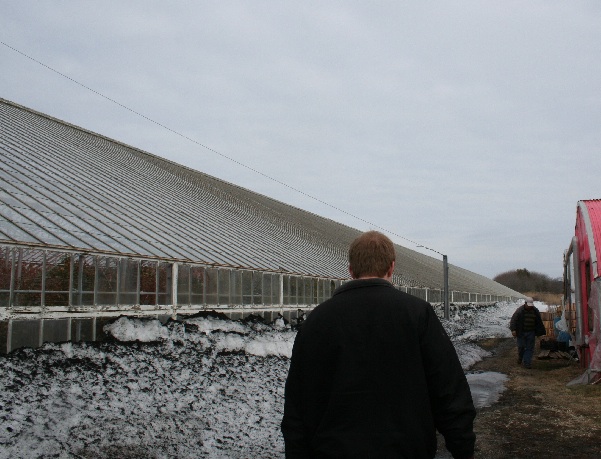Ingenuity Applied And A Business Blooms
To get a beautiful bloom takes plenty of work, time, and paying attention. There are thorns and obstacles just as when growing a person or a business.
Pinchbeck Roses first greenhouse opened at the farm off the Boston Post Road, Connecticut, in 1929. The business grew to be world famous, then closed in 2008, due to a combination of foreign competition and skyrocketing labor and fuel costs.


Through a unique partnership started in 2009, the first business endeavor for Growing Possibilities, a nonprofit social enterprise founded by Ability Beyond Disability, Roses for Autism opened in 2009 at the site.
Jim Lyman of The Lyman Farms, Inc. of Middlefield, whose son Eli has autism, knew that local farmers were struggling to find qualified workers to keep their businesses alive. He had the vision to see the opportunity for an innovative program that would meet the needs of both the autism and agricultural communities.
That idea has blossomed into Roses for Autism, a thriving multi-faceted business community.
Roses, lilies and other flowers are available year round for purchase, as a fundraiser for groups and schools, or for corporate gifts and special occasions. Walk in the door in Guilford and order an arrangement, pick up sweet-scented roses or mull over a corsage – your choice supports this innovative endeavor. A visit to the farm is refreshing to see bursts of color and the 50,000 square feet of growing space currently being used. Expansion into the as-yet dormant greenhouses will double that number. At present, drying flowers for potpourri takes place in an unheated portion.
Head grower, Tom Pinchbeck, brings years of experience to the operation and maintains the highest quality standards for 16 varieties and three grades of roses and three varieties of lilies. Custom designs including centerpieces and favors for special events. Lori Gregan (left) is manager of retail operations.

“Time brings roses.” – Portuguese proverb
 Roses for Autism not only provides individuals on the autism spectrum the chance to learn the skills necessary to maintain meaningful employment, but also serves as a model that can be replicated nationwide to develop unique opportunities for them as a whole new competitive workforce.
Roses for Autism not only provides individuals on the autism spectrum the chance to learn the skills necessary to maintain meaningful employment, but also serves as a model that can be replicated nationwide to develop unique opportunities for them as a whole new competitive workforce.
“The thinking patterns of individuals with autism spectrum disorder are markedly different from the way in which ‘normal' people think. While impairments and challenges do exist, greater progress can be made teaching these individuals when parents and teachers work on building the child's strengths and teach in a manner that is aligned with their basic pattern of thinking.”
– Temple Grandin, author, speaker, professor, designer, whose livestock handling systems now handle more than half of the cattle in the U.S.
To find a retail or market near you to purchase flowers or arrangements that support this endeavor, see this link. Location is 929 Boston Post Road, Guilford, Conn. Retail hours are Monday through Saturday, 8:30 a.m. to 4 p.m. Call (203) 453-2186 to order ahead or for more information. Web site is www.rosesforautism.com.



